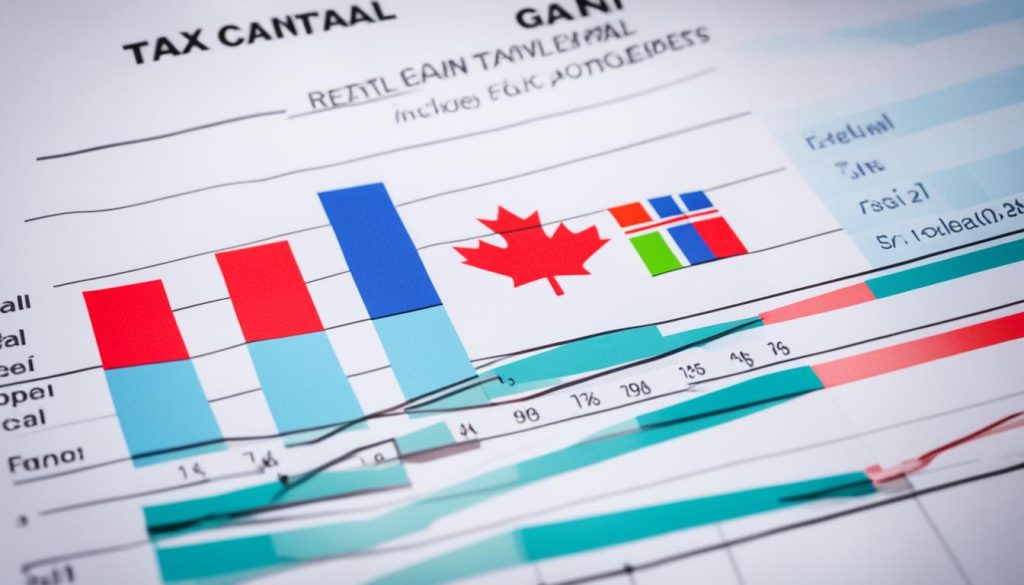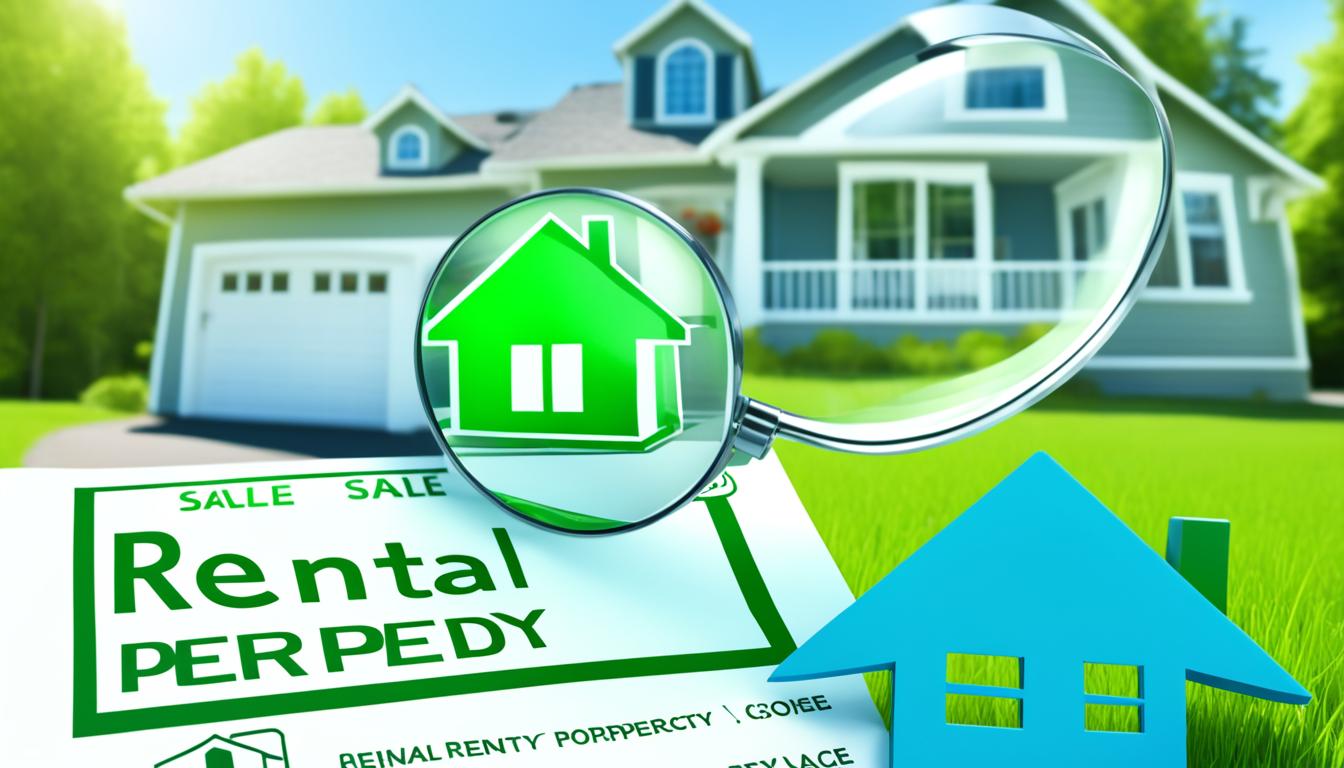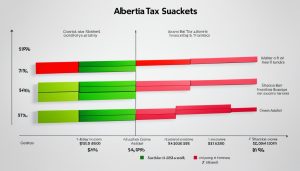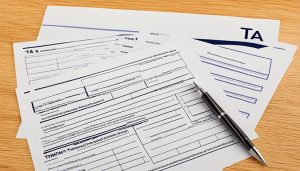Did you know that 50% of the profits from selling an investment property in Canada are subject to capital gains tax? This means that for every $100,000 you make on a rental property sale, you could owe the government up to $25,000 in additional taxes. Fortunately, there are several legal strategies Canadians can use to minimize or even eliminate this tax liability when selling their rental properties.
The article outlines various approaches, including utilizing the principal residence exemption, incorporating the rental property business, contributing to tax-sheltered accounts like RRSPs and TFSAs, claiming tax deductions on rental property expenses, and taking advantage of capital losses from previous years. It’s important to note that tax avoidance, which involves using legal methods to reduce one’s tax liability, is distinct from tax evasion, which is the illegal act of intentionally not reporting income or providing false information on tax returns.
Additionally, the article provides insights on how to calculate capital gains tax, explaining the concepts of adjusted cost base, proceeds of disposition, and the 50% inclusion rate for capital gains in Canada. By understanding these principles and applying the appropriate strategies, Canadian landlords can significantly reduce their tax burden when selling their rental properties.
Understanding Capital Gains Tax in Canada
When it comes to understanding what is capital gains tax? in Canada, it’s important to know that it is a tax levied on the profit made from selling a capital asset, such as a rental property. The capital gain is the difference between the original purchase price, known as the adjusted cost base, and the final selling price, or proceeds of disposition.
To calculate capital gains tax on the sale of a property in Canada, you need to determine the adjusted cost base, which includes the purchase price, the cost of any improvements made to the property, and any selling expenses. The capital gain is then calculated by subtracting the adjusted cost base from the sale proceeds. Typically, 50% of this capital gain is added to your annual income and taxed at your marginal tax rate.
In terms of how capital gains tax works in Canada, it’s important to understand that it is a tax on the profit from selling a capital asset, not the entire sale proceeds. This means that if you sell a rental property for a higher price than you originally paid, you will be required to pay tax on the difference, or the capital gain, rather than the full sale amount.
Sell Your Real Estate Property at the Right Time
When it comes to minimizing capital gains tax on the sale of a rental property in Canada, the timing of the transaction can make a significant difference. According to the first source, if possible, it is better to wait until January 1st of the next year before selling your rental property. This way, you can push out your capital gains tax payment to April 30th of the following year. This strategy can provide you with additional time to plan and prepare for the tax implications of the sale.
The source also suggests that you may want to wait to sell the rental property during a slower income year if your earnings tend to fluctuate from one year to the next. This can help reduce your overall tax burden by keeping you in a lower tax bracket, as the capital gains will be taxed at a lower marginal rate. By carefully considering the best time to sell a rental property in Canada to avoid capital gains tax, you can potentially save a substantial amount on your tax bill.
Contribute to Your RRSP
The first source explains that your tax-deferred registered retirement savings plan (RRSP) account can be used to hedge against taxation when selling a rental property. By contributing some or all of your profits from the sale to your RRSP, you can lower your taxable income for that year, thereby reducing the amount of taxes you have to pay on the capital gains. This strategy involves using the available RRSP contribution room to offset the increase in income from the capital gains.
Utilizing your RRSP is a valuable tool in reducing capital gains tax on rental property in Canada. By funneling proceeds from the sale into your RRSP, you can effectively lower your taxable income for the year, resulting in a smaller tax burden on the capital gains. This strategy allows you to defer taxation on those gains, providing flexibility and potential long-term tax savings.

It’s important to note that the amount you can contribute to your RRSP is subject to annual contribution limits. However, by carefully managing your RRSP contributions, you can strategically use your RRSP to minimize the capital gains tax you owe when selling a rental property in Canada.
Contribute to Your TFSA
As a savvy Canadian investor, you can leverage the benefits of a Tax-Free Savings Account (TFSA) to help minimize capital gains tax on your rental property. The TFSA allows you to hold a wide range of investments, including cash, mutual funds, stocks, and bonds, and withdraw any gains from the account tax-free. This means that the profits earned in your TFSA, including interest and capital gains, are typically not subject to taxation when you withdraw the funds.
Tax-Free Savings Account Benefits
By contributing to your TFSA, you can effectively shield your rental property gains from being taxed. This can be a powerful strategy, especially if you expect your property to appreciate significantly in value over time. The tax-free growth within the TFSA can help offset the capital gains tax you would have otherwise owed when selling the property.
TFSA Contribution Limits
It’s important to be aware of the TFSA contribution limits in Canada, which can help you plan your strategy effectively. As of 2023, the annual TFSA contribution limit is $6,500, and the lifetime contribution limit is $88,000. By maximizing your TFSA contributions, you can create a tax-efficient investment portfolio that includes your rental property gains, ultimately reducing your capital gains tax liability when it’s time to sell.
Use Your Capital Losses
When it comes to managing capital gains tax on rental property in Canada, understanding how to utilize your capital losses is a crucial strategy. The first source explains that a capital loss occurs when you experience a financial loss from selling an investment, such as a rental property.
Offsetting Capital Gains with Losses
These capital losses can be used to offset any capital gains you realized in the taxation year, which can help reduce your overall tax bill. This is an important tactic, as capital gains on rental property are typically subject to taxation at your marginal tax rate.
Carrying Forward Capital Losses
If you have capital losses that exceed your capital gains in a given year, you can carry forward those losses to offset future capital gains in subsequent years. This can be a valuable strategy for landlords who may experience fluctuations in their rental property investments over time.

By effectively utilizing your capital losses to offset capital gains on rental property, you can significantly reduce your tax liability and keep more of the proceeds from the sale of your investment.
How to Avoid Capital Gains Tax on Rental Property Canada?
1. Capital Gain Reserve
One effective strategy to mitigate the capital gains tax liability when selling a rental property in Canada is the capital gain reserve. This mechanism allows you to spread the capital gains tax payment over several years, rather than paying the full amount upfront. By doing so, you can potentially lower your overall tax bill and manage the tax implications more favorably.
The capital gains reserve operates by enabling you to report a portion of the capital gain as income each year, rather than the entire amount in the year of the sale. This can be particularly beneficial if the sale of the rental property has pushed you into a higher tax bracket, as the reserve can help you avoid being taxed at the higher marginal rate on the entire capital gain.
It’s important to note that the use of the capital gains reserve should be discussed with a tax professional to ensure it aligns with your specific circumstances and goals. They can provide guidance on the appropriate application of this strategy to can i use a capital gains reserve to defer paying taxes on the sale of a rental property in canada.
2. Transfer Ownership of the Property
If you are married or in a common-law relationship, you can consider transferring the ownership of your rental property to your spouse or partner as a strategy to avoid capital gains tax in Canada. This approach can be particularly beneficial if the person receiving the property will use it as their principal residence.
3. Transferring Ownership to Spouse or Partner
By transferring the ownership of the rental property to your spouse or partner, you can effectively avoid paying capital gains tax on the sale of the property. However, it’s important to note that the person receiving the ownership must live in the property as their principal residence. This means they must occupy the property as their main place of residence for a minimum of one year, in order to qualify for the principal residence exemption.
It’s worth consulting with a tax professional to ensure that the transfer of ownership is done properly and to understand any potential implications or requirements. They can provide guidance on the necessary documentation and legal processes involved in transferring the property to your spouse or partner.

4. Make Your Real Estate Property Into an Incorporated Business
If you’re a Canadian landlord looking to minimize your capital gains tax liability when selling a rental property, incorporating your rental property business can be a highly effective strategy. By transferring the ownership of the property to a corporation, you can take advantage of the lower corporate tax rate when the property is eventually sold, rather than being taxed at your personal marginal rate.
Benefits of Incorporating a Rental Property Business
Incorporating your rental property business in Canada offers several key benefits when it comes to avoiding capital gains tax:
- Lower Tax Rate: When the property is sold, the capital gain is taxed at the lower corporate tax rate rather than your personal marginal tax rate, which can be significantly lower.
- Income Splitting: Incorporating allows you to split income with family members who are also shareholders in the business, potentially reducing your overall tax burden.
- Tax-Deferred Growth: Profits earned within the corporation can be reinvested and allowed to grow on a tax-deferred basis, providing more capital for future investments or the eventual sale of the property.
- Creditor Protection: Separating your rental property assets from your personal finances through incorporation can provide an additional layer of protection in the event of legal or financial challenges.
Considerations for Incorporating
While incorporating your rental property business can be a powerful tool for avoiding capital gains tax in Canada, it’s important to carefully consider the potential drawbacks and administrative requirements:
- Upfront Costs: Incorporating a business involves initial setup fees and ongoing compliance costs, such as legal and accounting fees, that must be factored into your overall tax planning strategy.
- Ongoing Reporting: Corporations are subject to more extensive reporting requirements, including the filing of annual tax returns and financial statements, which can be more time-consuming and complex than personal tax filings.
- Potential Double Taxation: In some cases, incorporating a rental property business may result in a form of “double taxation,” where profits are taxed at the corporate level and then again when distributed to shareholders as dividends.
It’s highly recommended to consult with a qualified tax professional to weigh the pros and cons of incorporating a rental property business in Canada and determine if it’s the right strategy for your specific situation.
Claim Tax Deductions on Rental Property Expenses
As a landlord in Canada, you can claim tax deductions on a variety of expenses related to your rental property. These [what rental property expenses can i deduct to reduce capital gains tax in canada] can help offset your overall tax burden, including the capital gains tax you may owe when selling the property.
Deductible Rental Property Expenses
Some of the common [what rental property expenses can i deduct to reduce capital gains tax in canada] that landlords can deduct include:
- Advertising to find new tenants
- Home insurance premiums
- Mortgage interest payments
- Property taxes
- Property management fees
- Utilities like electricity, gas, and water
- Repairs and maintenance costs
- Office expenses such as stationery and postage
- Legal and accounting fees
- Salaries paid to employees
- Travel expenses related to managing the property
By claiming these [what rental property expenses can i deduct to reduce capital gains tax in canada], you can effectively reduce your overall taxable income and, in turn, minimize the capital gains tax you may owe when selling the rental property.
Take Advantage of the Principal Residence Exemption
If the rental property was your principal residence for some of the time you owned it, you may be able to take advantage of the principal residence exemption. This exemption allows you to claim the property as your principal residence for up to four years, even if you did not live there for the entire time you owned it. This can significantly reduce or eliminate the capital gains tax liability on the property when you sell it.
Qualifying for the Principal Residence Exemption
To qualify for the principal residence exemption, the property must have been your primary place of residence for at least one year during the time you owned it. This means that you must have lived in the property as your main home for at least 12 consecutive months. If you meet this requirement, you can claim the exemption to reduce or eliminate the capital gains tax you owe when selling the property.
Partial Exemption for Rental Properties
Even if you rented out part of your home, you may still be able to claim a partial principal residence exemption. This can be the case if you lived in the property as your main residence for a portion of the time you owned it. The exemption will apply to the percentage of the property that you occupied as your principal residence, while the rental portion will be subject to capital gains tax. Consulting a tax professional can help you determine the appropriate exemption amount based on your specific situation.
Make Gifted or Inherited Property Your Principal Residence
If you have received a rental property as a gift or inheritance in Canada, you may be able to avoid or minimize the capital gains tax liability by making the property your principal residence. To do this, you must live in the property for at least one year and meet the other requirements for the principal residence exemption.
The principal residence exemption allows you to exclude all or a portion of the capital gain from your taxable income when you sell your home. By designating the inherited or gifted rental property as your principal residence, you can take advantage of this exemption and potentially eliminate the capital gains tax when you eventually sell the property.
However, it’s important to note that there are specific rules and criteria you must meet to qualify for the principal residence exemption. For example, you must have lived in the property as your primary residence for at least one year, and you can only claim the exemption for one property at a time.
By carefully considering this strategy and working with a tax professional, you may be able to avoid capital gains tax when selling a rental property you inherited or was gifted in Canada. This can be a valuable option for those who have received real estate assets through inheritance or as a gift.

Conclusion
In conclusion, there are several legal strategies that Canadian landlords can use to minimize or avoid capital gains tax when selling a rental property. These include contributing to tax-sheltered accounts like RRSPs and TFSAs, claiming deductions on rental property expenses, taking advantage of the principal residence exemption, and transferring ownership to a spouse or partner.
By understanding the complexities of capital gains tax and proactively implementing these strategies, Canadian landlords can potentially reduce their tax burden and keep more of the profits from the sale of their rental properties. It’s crucial to work closely with a qualified tax professional to ensure you are utilizing all available tax-saving opportunities within the confines of the law.
Ultimately, with the right planning and knowledge, Canadian landlords can navigate the capital gains tax landscape and maximize their returns when selling a rental property. By staying informed and taking advantage of the available tax-saving strategies, landlords can protect their investments and secure a stronger financial future.
FAQ
1. What is capital gains tax?
Capital gains tax is a tax on the profit from selling an asset, including rental property. The capital gain is the difference between the original purchase price and the selling price of the property.
2. How is capital gains tax calculated on the sale of a property?
To calculate the capital gains tax, you need to determine the adjusted cost base of the property, which includes the purchase price, cost of improvements, and selling expenses. The capital gain is then calculated by subtracting the adjusted cost base from the sale proceeds, and 50% of this capital gain is added to your annual income and taxed at your marginal tax rate.
3. How does capital gains tax work in Canada?
In Canada, 50% of the capital gain is included in your taxable income and taxed at your marginal tax rate. The other 50% is not taxed.
4. When is the best time to sell a rental property to avoid capital gains tax?
It is better to wait until January 1st of the next year before selling your rental property. This way, you can push out your capital gains tax payment to April 30th of the following year. You may also want to wait to sell the property during a slower income year if your earnings tend to fluctuate from one year to the next, as this can help reduce your overall tax burden by keeping you in a lower tax bracket.
5. How can I use my RRSP to reduce capital gains tax on rental property in Canada?
By contributing some or all of your profits from the sale of the rental property to your RRSP, you can lower your taxable income for that year, thereby reducing the amount of taxes you have to pay on the capital gains.
6. How can I use my TFSA to avoid capital gains tax on rental property in Canada?
The TFSA allows you to hold investments like cash, mutual funds, stocks, and bonds, and withdraw any gains from the account tax-free. The profits earned in the account, including interest on capital gains, are typically not subject to taxation when withdrawn.
7. How can I use capital losses to offset capital gains on rental property in Canada?
Capital losses can be used to offset any capital gains you realized in the taxation year, which can help reduce your overall tax bill.




